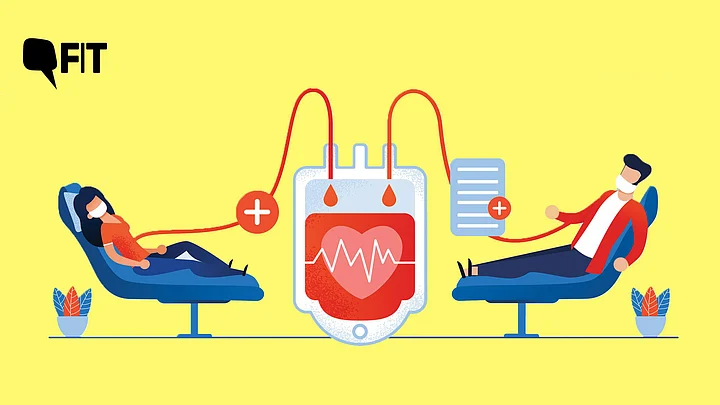According to the reports of Centers for Disease Control and Prevention (CDC), 13.2 million people from the US donate blood and nearly 100 million units of blood are donated worldwide every year.
WHO emphasises on the importance of donating blood regularly since it can save lives but can be stored up to a limited time. But people are scared to come forward and help the people in need for the sole reason that they aren't sure if it is safe to do so.
It is because of the wrong information and misconceptions spread around. Lack of knowledge and awareness should not be the reason for a burden on the healthcare system in spite of a solution.
Therefore, in this article we shall replace the myths with the right facts backed up by science so that more people come forward to donate blood without any fear and hesitation.
Donating Blood Can Make You Sick
According to PubMed Central, a person who is healthy does not put his overall health in jeopardy if he donates blood. You shall remain as healthy as you were even after you donate blood. Within a period of 4-6 weeks, the body replaces the lost blood cells and the volume returns to normal within 48 hours itself.
According to the doctors of Mayo Clinic, you shall feel dizzy, lightheaded and nauseous after donating blood but that is completely normal and lasts only for a few minutes.
It is Not Safe for Older People to Donate Blood
According to the MedicalNewsToday, it is a myth that older people cannot donate blood. People above the age of 16 years and weighing more than 110 pounds can donate blood without any hesitation.
The usual age to donate blood can vary from 16 years to 66 years though some countries have different rules regarding age and blood donation. But people who have been donating blood can donate up to 70 ears of age.
People on Medications Cannot Donate Blood
According to the doctors of Mayo Clinic, medicines that are taken on regular basis like pills for contraception, diabetes, high blood pressure do not affect your ability to donate blood.
They also suggest that people who might have taken aspirin or other aspirin containing medications should wait for 48 hours before donating blood and people who are on antibiotics can donate blood after their course is over.
Blood Donation Poses a Risk of Infection
According to doctors of Cleveland Clinic, there is no danger in donating blood and one has no risk of contracting any blood borne infections. Nowadays the doctors have started to use sterile disposable injection, needles and other equipment minimising the risk of any infections.
Blood Donation is Painful and Time Consuming
It is a straight out misconception. According to the American Red Cross the only time consumed in donating blood is about 8-15 minutes and the more time that goes is in filling the forms, registration, mini physical exam and then resting and enjoying the refreshments after donation.
According to the PubMed Central, there is no major pain experienced while donating blood, you shall experience a mild pain and bruising while the needle is inserted but that is short lived while the bruising lasts for a day or two but is harmless.
People with High Blood Pressure and Cholesterol Cannot Donate Blood
According to the American Redcross, high blood pressure and its medications cannot prevent you from donating blood as long as your systolic blood pressure is below 180 and diastolic blood pressure is below 100. It is the same for patients with high cholesterol as well.
People with Piercings and Tattoos Shouldn't Donate Blood
According to Healthline, people who have introduced any foreign materials to their body like needles and guns for piercings or tattoos can donate blood but the basic rule is to wait for at least 3 months to rule out the risk of any infections that also enter the bloodstream.
Blood Can be Stored Forever
According to the Northwestern Medicine, blood can be stored safely for a period of 42 days but if frozen, it can be stored for 10 years though freezing is not an ideal situation since it degrades the quality. On the other hand, blood platelets can be stored for 5 days at room temperature and plasma can be stored for a year in frozen state.
You can Donate Blood Only Once a Year
It is a pure myth and according to the doctors of Mayo Clinic and American Red Cross people can safely donate blood after the lost blood cells are replenished and that happens within 8 weeks and people are free to donate blood after a period of 56 days.
(At The Quint, we question everything. Play an active role in shaping our journalism by becoming a member today.)
